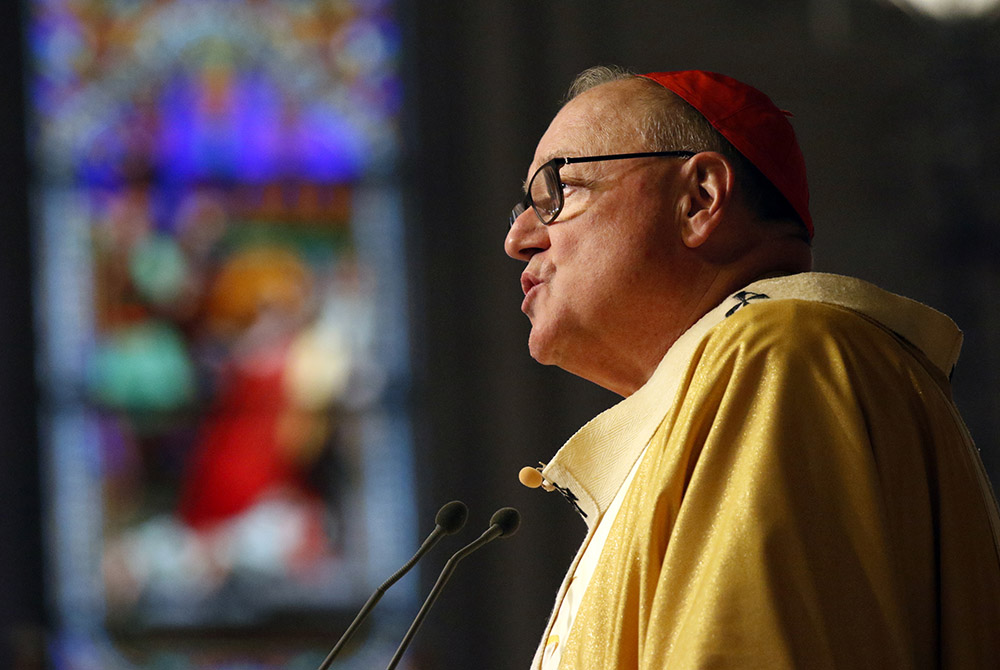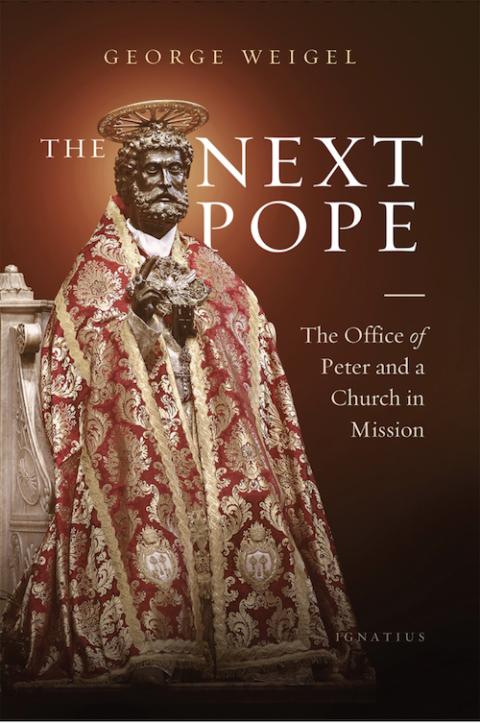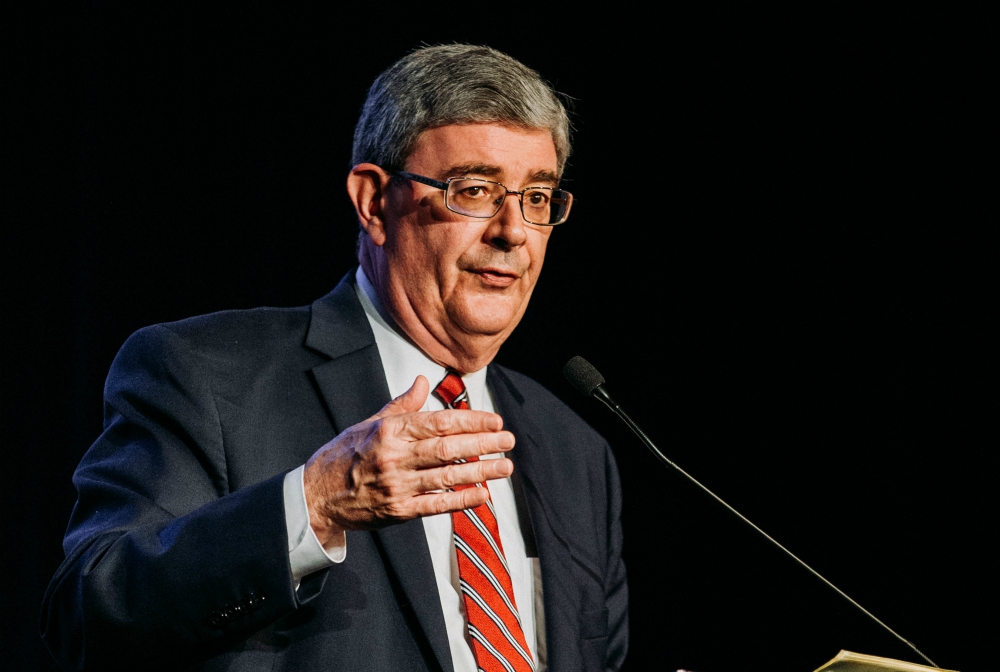
New York Cardinal Timothy Dolan delivers his homily during the chrism Mass April 16, 2019, at St. Patrick's Cathedral in New York City. (CNS/Gregory A. Shemitz)
The bishop of the Big Apple, Cardinal Timothy Dolan, is under fire again, this time for appearing to meddle in the process of selecting a papal successor. News flash: The current pope is currently alive and, as far as we know, healthy and not considering stepping down.

Cover art for "The Next Pope" (Ignatius Press)
Yet at least four cardinals around the world told NCR Vatican correspondent Joshua McElwee that they had received copies of a book that tries to shape what the book's own publisher calls "a transition of great consequence."
The copies of The Next Pope: The Office of Peter and a Church in Mission by George Weigel were accompanied by a June 9 letter from Dolan on archdiocesan letterhead in which he tells his brother cardinals: "I am grateful to Ignatius Press for making this important reflection on the future of the Church available to the College of Cardinals."
I have not yet read Weigel's book, but NCR's Michael Sean Winters, in his review, found it lacking, not only because of the author's "condescending attitude" and "passive-aggressive attacks on Francis," but because its "textbook articulations of neoconservative principles" offered such a "crimped" view of the papacy.
One of Weigel's insights, according to the publisher's description of the book, is that the Second Vatican Council will not be personally influential to Francis' successor, who may have only been a child in the early 1960s. "Thus the next pope will not have been shaped by the experience of the Council and the immediate debates over its meaning and reception like Pope John Paul II, Pope Benedict XVI, and Pope Francis."

George Weigel speaks July 25, 2019, at the Napa Institute's annual Summer Conference in California. (CNS/Courtesy of Napa Institute)
I can picture the marketing folks at Ignatius coming up with the brilliant idea to send the book to all 222 of the world's cardinals. Or was it Dolan's idea? And, more importantly, who paid for the books? Did anyone stop to think how this might be perceived? Or did they not care?
Response to NCR's exclusive news story on July 14 was explosive, with many Catholics understandably upset that a cardinal elector seemed to be lobbying for a particular type of candidate for the next pope — in direct contradiction to an apostolic constitution signed by Pope John Paul II that expressly forbids cardinals from discussing possible papal successors.
And doesn't the cardinal archbishop of New York have enough on his plate, what with massive school closures, other budget cuts and the continued challenges of the coronavirus?
But Dolan, who seems to see himself as the consummate politician, apparently couldn't help himself. Like many Catholics on the right, he may have confused the church's next conclave — whenever it may be — with this November's upcoming presidential election.
Admittedly, Weigel's book is not as blatant as another tome with the same title but subheaded The Leading Cardinal Candidates. In that The Next Pope, author Edward Pentin profiles 19 papabile — or at least 19 that Pentin and other right-wing Catholics would like to see. That book seems to be in the spirit of, if not directly related to, the "Red Hat Report," which encourages freelance researchers to "audit" cardinals in advance of the next conclave.
In today's communication-saturated age, it may be impossible to expect no conversation whatsoever about future leaders in the church. But I think St. John Paul could not have imagined that his biographer and one of his bishop appointees would do something so crass as to send a clearly politicking book to all the electors.
[Heidi Schlumpf is executive editor of NCR. Her email address is hschlumpf@ncronline.org. Follow her on Twitter: @HeidiSchlumpf.]
Advertisement




